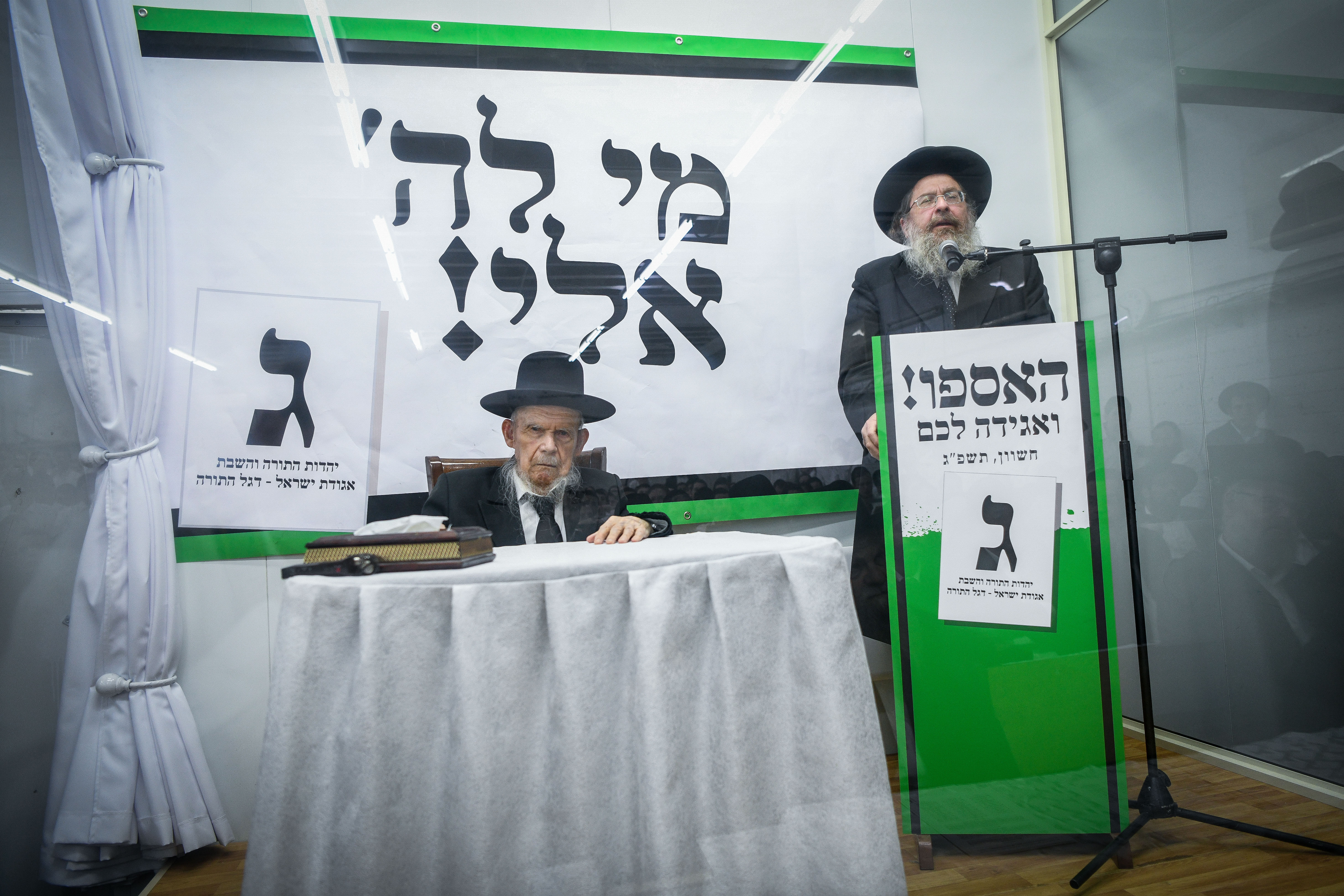Understanding the divisions in Israeli haredi society
But it is important to note the distribution of the responses among the three main groups that make up the haredi public: 43% of hassidim identified themselves as on the Right, as did 44% of Sephardim, compared with only 22% of Lithuanian haredim. In addition, around 28% of the hassidic public identified itself as moderate right wing, along with 42% of the Sephardi public and 48% of the Lithuanian public.
Not surprisingly, the Lithuanians make up a large majority of those in the Center and this is what the struggle is all about. The influence of the late Rabbi Elazar Shach’s pragmatic and dovish approach is still evident among the Lithuanian public, relative to the other haredi groups, but it is on the wane.
This can be attributed to the alignment of the haredi parties with the Right in recent decades, to the Right’s acknowledged identification with religious tradition, and perhaps also to the fact that the haredi population is the youngest in Israel, and as we know, right wing and even extreme right-wing views are usually the most popular among young Israeli Jews.
The Yated Ne’eman editorial also takes aim at the blurring of social boundaries between the haredi and right-wing publics, as well as at the adoption of hawkish views within the haredi public itself.
The writer clarifies that somewhat paradoxically, it is precisely the Right’s traditional closeness to religion and because there are kippah-wearers who identify with the right that the danger posed by them is even greater. Like a chameleon, through its external appearance, the right’s affinity to religion may fool the ultra-Orthodox world into thinking that they are an integral part of their religious world.
Yet while the struggle to delineate the boundaries of the haredi public will in principle be decided by the entire haredi leadership, the attack on the holding of hawkish, right-wing views is more complex.
The editorial in the Lithuanian Yated Ne’eman expresses contempt toward those who listen to “the little Kahanist that dwells inside people who do not have the politically correct outlook,” and even forcefully argues that, “the Torah perspective is diametrically opposed to the outburst of emotions that come from the gut and even those that come from the head; rather, [it only accepts] those based on the Torah... The Torah outlook is opposed to actions and sayings that can set the entire country aflame and endanger people’s lives.”
However, the views expressed by haredi Knesset members – mainly the hassidim among them, though not exclusively – tend more toward Ze’ev Jabotinsky than toward Shach.
“We belong to the right-wing bloc, we want to keep the land of Israel whole.”
Yitzhak Goldknopf
Some of the ministers who belong to the hassidic stream openly hold hawkish views and publicly oppose any territorial concessions to the Palestinians. At the annual conference of the Israel Democracy Institute’s Religion and State Program in September 2022, the chairman of United Torah Judaism, Yitzhak Goldknopf, declared, “We belong to the right-wing bloc, we want to keep the land of Israel whole.”
And in an interview in 2020, MK Meir Porush expressed complete opposition to giving up “even a single piece of the territory of the land of Israel.” Thus, it is not surprising that Porush spoke out against the editorial published in Yated Ne’eman, saying that it applies only to yeshiva students but not to the haredi public as a whole, which should attend the Right’s demonstration in droves.
A similar shift is evident among Lithuanian members of the Knesset. MK Moshe Gafni, who was identified for many years as a pragmatist who was closer to the position of the Left, today positions himself as being closer to the Right, due to the latter’s more religious character. And the next generation of Lithuanian public representatives includes MK Yitzhak Pindrus, who was raised in the far-right and almost messianic Zilberman community.
If the last barricade of haredi pragmatism collapses and Yated Ne’eman is left as a lone voice in the desert, then the demographic growth and internal processes within the haredi public will have an impact not only on social issues in Israel, but also on the country’s foreign and security policy, and will create a clear and steady majority for the views of the Right.
This article was originally published in the Jerusalem Post.


